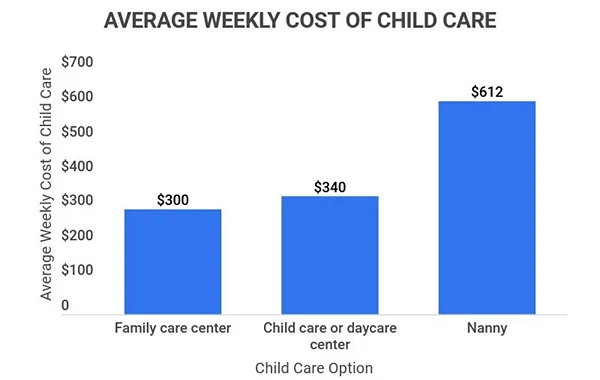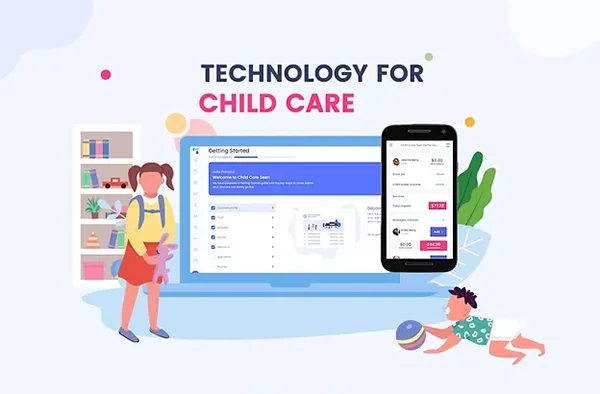Exploring Alternatives to a Childcare Franchise

The childcare business can be a rewarding venture. Concerning this, many believe the franchise route is their only option. In reality, there is a lot to explore. The importance of a successful kid-care business is becoming evident.
This not only provides financial stability but also brings loved ones closer. So, it’s worth exploring this vast landscape filled with opportunities that suit your goals, budget, and personal vision.
Among the countless decisions to be made, leveraging advice from child care consultants can provide invaluable insights into these choices. As an outcome, it encourages the degree of customization and leads to building rapport with the community and families that are being served.
When deciding, it’s influential to acknowledge the benefits and drawbacks of each option as you are reviewing the many routes to starting a daycare company. This is how owners can discover a model as per their entrepreneurial style and the needs of the households.
In this guide, you’ll be exploring alternatives to a childcare franchise.
Choosing the Path of an Independent Childcare Center
Starting an independent base offers a remarkable opportunity to build a curriculum and environment from the ground up. This independence means creating a space that reflects your values and meets the specific needs of your fellow citizens.
And, without the constraints of a franchisor’s rules. However, this path requires careful planning—especially in financial management.
Do You Know?:
In this fast-paced world where parents have little to no time for their beloved kids, 58% of working parents rely on child care centers. These numbers are shocking that’s about 6.38 million parents across the nation.
Crafting a solid business plan, securing funding, and managing ongoing expenses demand attention and expertise.
Nonetheless, for those passionate about making a personal mark on early childhood education, this route offers unlimited potential to innovate and inspire.
The Appeal of a Childcare Cooperative
Another intriguing alternative is establishing a kid-care cooperative. This model is built on the foundation of shared ownership and management by parents and educators. The cooperative approach fosters a close-knit community atmosphere where decisions are made collectively.
And, operating costs are often lower than in other child-care settings.

Statistics:
The stats above demonstrate that in the US, the average cost to send a child to a childcare or daycare center is around $340 per week.
when managing a co-op comes with its own set of challenges—like coordinating decision-making among members—the benefits of direct parent involvement and a strong sense of community make it an attractive option for many.
Forming Partnerships With Local Businesses and Organizations
One often-overlooked strategy involves forming alliances with existing local companies and organizations. This could mean operating a service within a community building, church, or shared space with another organization.
The advantages of such associations include reduced operating costs, access to a built-in client base, and mutual benefits for both parties.
For instance, a fitness club might appreciate offering child care to its members, providing a stand-out selling point.
These collaborations can lead to innovative childcare solutions tailored to the specific needs of a society.
Leveraging Technology for Modern Childcare Solutions

In today’s digital age, integrating technology into your childcare business can set you apart. From management software that simplifies enrollment and scheduling to using social media for marketing, the digital age offers tools to enhance operations and connect with family members.
Also, incorporating educational innovation into your curriculum can enrich the learning experience for children, preparing them for a technologically-advancing world.
Fast Fact:
In 2023, the child care industry in the United States was valued at $60.4 billion.
However, it’s vital to balance tech use with hands-on learning, ensuring that children benefit from a varied and holistic educational approach.
Moreover. to navigate through this highly competitive landscape one needs strong branding and effective marketing strategies. It will attract parents and distinguish your business from competitors. Let’s take a closer look at the aspects of marketing strategies:
- Branding: The first impression is the last, likewise, a strong brand presence creates a positive impression on parents. Hence, it encompasses the mission, values, and impression on parents.
Combining all, it showcases the commitment to delivering exceptional services.
- Marketing Strategy: You all must agree that effective marketing strategies amplify the brand presence. For that, you can consider the practice of developing a user-friendly and informative website.
Other than that, digital marketing channels like targeted online advertising, SEO, and social media campaigns assist in reaching a large audience.
- Build Community: Want to know how to build community? Foster healthy relationships with parents through events, open houses, and regular communication. This often contributes to a franchise’s brand loyalty.
In a nutshell, it creates a positive word-of-mouth effect that might emphasize referrals and increase enrollments.
To Conclude
In conclusion, stepping into the infant care industry doesn’t have to mean buying into a brand. Independent centers, cooperatives, local collaborations, and innovation-driven solutions present viable and potentially more rewarding paths.
By carefully considering your options and consulting with experts, you can choose the route that best aligns with your vision for providing quality childcare.
Each alternative comes with its varied set of challenges and rewards, but at their core, they all offer the chance to make a lasting impact on children and family members in your community.








